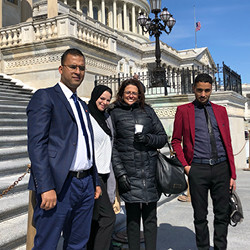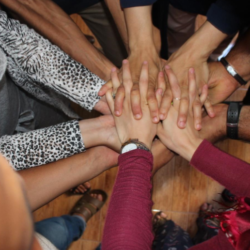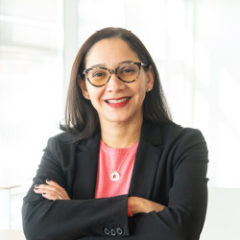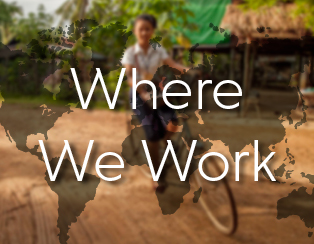Morocco
Fostering Peaceful Communities
While Morocco has been actively engaged in efforts to counter violent extremism at the national and global level, more than 1,000 young Moroccan men and women have joined violent extremist groups abroad, leaving the country to address the looming challenge of prevention, intervention, rehabilitation and reintegration.
Since 2015, the Moroccan Central Bureau of Judicial Investigation has dismantled more than 40 terrorist cells. In 2016, 47 individuals were arrested on terrorism charges, the majority of whom were returning from Syria and Iraq.
Government-led efforts to build community resilience in the face of violent extremism and address grievances that contribute to radicalization have made significant progress. However, even more outreach needs to be done to further engage local civil society leaders to reach at-risk individuals within their own communities.
Taking an innovative approach to building a network of resilience at the local level, the Fostering Peaceful Communities in Morocco project supports local religious and civil society leaders to work together in their own communities to address the factors that make youth more vulnerable to radicalization and recruitment by violent extremist organizations.
The project, which is funded by the United States Department of State’s Bureau of Conflict and Stabilization Operations, is working with 14 local leaders, from male and female Islamic scholars to women leading youth-focused organizations, in four areas that have historically been susceptible to violent extremist radicalization and recruitment, particularly among youth.
The communities—Beni Mellal, Casablanca, Fès, and Salé—were selected based on the presence of extremist activity, the level of grievances fueled by marginalization and inequity, and the scarcity of other internationally-funded projects focused on countering violent extremism. Leaders were selected based on their roles as influencers in their respective regions.
Creative Associates International implements the project in partnership with the International Center for Religion and Diplomacy and several local and regional partners.
Through hands-on collaborative trainings, local religious and civil society leaders as well as community activists are strengthening their capacities to identify and address drivers of extremism within their communities. Participants are learning how to recognize and understand factors that can increase vulnerability among youth to radicalization and recruitment, and gaining practical skills for responding on a local level to reach those most at-risk.
Taking their knowledge back home, these leaders conducted assessments that identified potential vulnerabilities to radicalization and recruitment into violent extremist organizations. With this data, they developed and implemented evidence-based programmatic interventions at the community level to address these drivers of extremism and foster community cohesion and youth inclusion.
Based on these results, community leaders will adapt their interventions as needed to increase the chances of success.
To share lessons learned in building resilience and reducing risk to violent extremism, the project is helping to establish a network of trained community leaders to facilitate the collection and distribution of best practices throughout Morocco as well as with experts in countering violent extremism in the United States.
FEATURED NEWS

The drive to lead: One woman’s quest to break barriers in Morocco
When she was a girl, Soukaina Sriti looked for ways to be involved in her community. Ever since then she’s been forging a new path for herself and other women leaders in civil society. Learn More...

Lessons Learned from the Fostering Peaceful Communities in Morocco Project
The Fostering Peaceful Communities in Morocco project worked with religious and community leaders to conduct community-level countering violent extremism activities. This report explores lessons learned from the project. Learn More...




